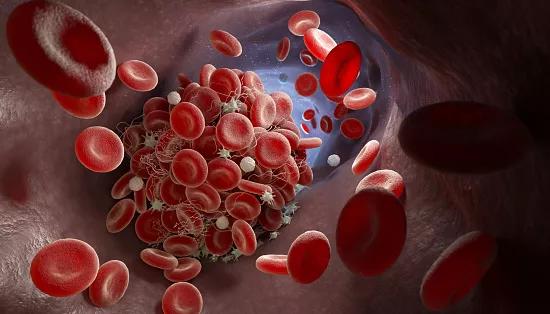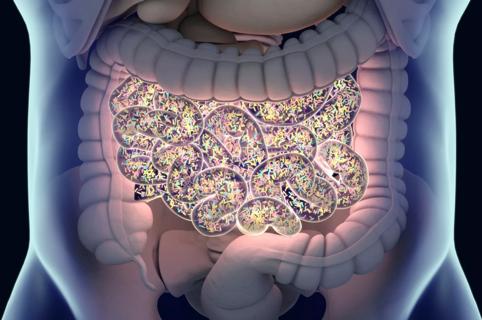Common cancer therapy increases serious risks in murine models

New research shows that immune checkpoint inhibitors (ICI) can enhance cancer-associated thrombosis in murine models of colon carcinoma. The Cleveland Clinic study, which was presented at the 2021 meeting of the American Society of Hematology in December, was prompted by the clinical observation that patients who undergo ICI treatment suffer from an elevated risk of venous thromboembolism (VTE).
Advertisement
Cleveland Clinic is a non-profit academic medical center. Advertising on our site helps support our mission. We do not endorse non-Cleveland Clinic products or services. Policy
Oncologist and study coauthor Keith McCrae, MD, explains, “Despite the high incidence of this immune-related adverse event, the mechanisms behind it are not well-understood. The study was initiated to fill this knowledge gap and improve our understanding of ICI-induced thrombosis – a serious complication that can interrupt lifesaving cancer treatment.”
The research team evaluated for VTE formation following inferior vena cava (IVC) ligation using a syngeneic colon carcinoma murine model (CT26) with a BALB/c genetic background. Investigators treated both non-tumor-bearing and tumor-bearing mice with therapeutic doses of ICI (anti-PD1 and anti‐CTLA4) or isotype control antibodies. Western blot analysis for citrullinated histone H3 (CitH3) in thrombus extracts was performed.
Data showed that the tumor-bearing models who underwent IVC ligation after receiving anti-PD1 and anti-CTLA4 infusions developed larger thrombi than those treated with the isotype control IgG antibody. Researchers also found thrombus weights to be higher in the CT26 tumor-bearing mice who received ICI than in those in the isotype control IgG group. Furthermore, the plasma and thrombi of ICI-treated mice showed higher levels of CitH3, a NETosis marker, post-IVC occlusion.
“Interestingly, these differences were not found in non-tumor-bearing mice,” notes Dr. McCrae.
Because thrombosis is associated with decreased survival in patients treated with ICI, these new findings are significant, explains Dr. McCrae, a staff physician in Taussig Cancer Institute. “Thrombosis can lead to life-threatening complications, including pulmonary embolism, that require patients to stop ICI therapy altogether,” he explains. “This risk a significant drawback that limits this important treatment approach.”
Advertisement
One of the principal risk factors for the development of thrombosis is a history of the disorder itself, says Dr. McCrae. “Therefore, some patients who develop thrombosis during ICI therapy are already taking anticoagulants,” he says. “This suggests that standard anticoagulation may not be entirely effective for preventing thrombotic events. We hope that further research will allow us to define the mechanisms behind this complication and enable the development of safer, more effective anticoagulation strategies that don’t compromise the efficacy of immunotherapy.”
Dr. McCrae, whose next steps include expanding this research beyond colorectal tumors, notes that he and his colleagues will continue to evaluate the mechanisms and roles of different cell types and plasma components in the pathogenesis of ICI-associated thrombosis. “We aim to build a large biorepository of patients treated with ICI, whose biomarkers can be used to drive further research,” he concludes.
Advertisement
Advertisement

First full characterization of kidney microbiome unlocks potential to prevent kidney stones

Researchers identify potential path to retaining chemo sensitivity

Large-scale joint study links elevated TMAO blood levels and chronic kidney disease risk over time

Investigators are developing a deep learning model to predict health outcomes in ICUs.

Preclinical work promises large-scale data with minimal bias to inform development of clinical tests

Cleveland Clinic researchers pursue answers on basic science and clinical fronts

Study suggests sex-specific pathways show potential for sex-specific therapeutic approaches

Cleveland Clinic launches Quantum Innovation Catalyzer Program to help start-up companies access advanced research technology